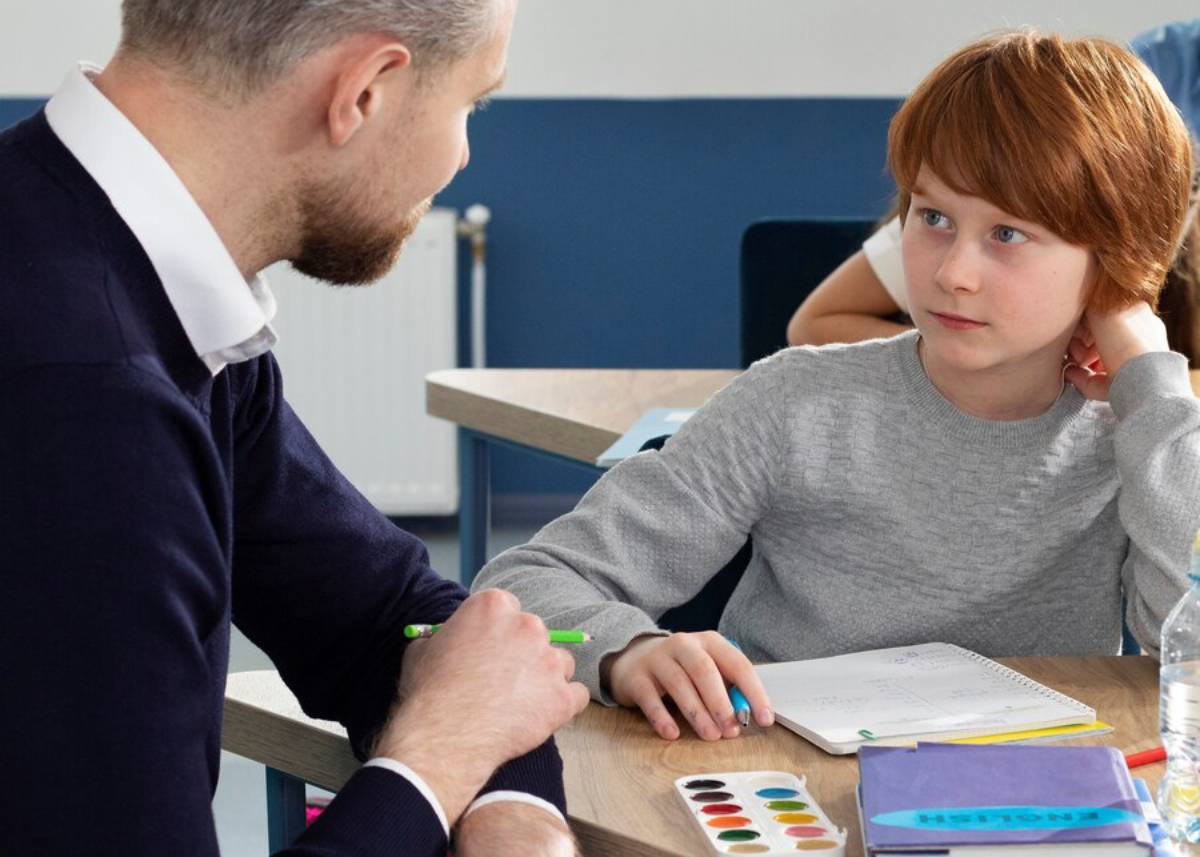The Parenting & Family Blog

Supporting Children with ADHD and Special Needs
Embracing Unique Journeys
Parenting is an incredible journey filled with joy, challenges, and growth. Having a child with ADHD or other special needs can lead to a different journey. But that journey is still full of richness and rewards. You’re not alone if you’re exploring a diagnosis or seeking ways to help your child’s emotional and developmental growth. Many families are walking this road with resilience, creativity, and compassion.
This guide offers helpful, research-based tips for parents of kids with ADHD and special needs. We’ll look at helpful parenting techniques. We’ll tackle common challenges. Plus, we’ll share strategies to help your child thrive in their own way.
Understanding ADHD and Special Needs
What Is ADHD?
ADHD stands for Attention-Deficit/Hyperactivity Disorder. It is a neurodevelopmental condition. It impacts focus, self-control, and organizational skills. It is often diagnosed in childhood and can persist into adulthood. Symptoms include:
- Inattention and distractibility
- Impulsivity
- Hyperactivity
What Are Special Needs?
“Special needs” covers a wide range of issues. This includes developmental, emotional, behavioral, and physical challenges. Some common conditions include:
- Autism Spectrum Disorder (ASD)
- Dyslexia and other learning disabilities
- Sensory processing disorders
- Physical disabilities
Each child’s situation is different, and their needs vary in intensity and type. The key is to see their strengths. Also, we should address their challenges with empathy. We can do this with care and based on evidence.
The Emotional Landscape of Parenting a Child with Special Needs
Parental Emotions: You’re Not Alone
Parents of kids with ADHD or other special needs feel many emotions. They feel love and pride, but also frustration, guilt, and exhaustion. These are all natural. Recognizing and handling your feelings is key to helping your child.
Helpful tips:
- Join support groups (online or in person)
- Seek therapy or counselling when needed
- Practice self-care: You can’t pour from an empty cup
Embracing the Positive
It’s easy to focus on challenges. However, children with special needs often offer unique views, creativity, and strength to a family. Celebrate these moments. Let them remind you of your child’s potential beyond their diagnosis.
Creating a Supportive Home Environment
Routines and Structure
Children with ADHD and special needs often thrive on predictability. Routines offer comfort and lower anxiety. They help your child understand what to expect.
Tips for effective routines:
- Use visual schedules with pictures or icons
- Break tasks into smaller, manageable steps
- Be consistent with wake-up, mealtime, homework, and bedtime
Sensory-Friendly Spaces
Children with sensory sensitivities can benefit greatly from having a calm, safe space. Consider:
- Dimmable lighting
- Soft textures and weighted blankets
- Noise-cancelling headphones
- A designated “quiet zone” for calming down
Positive Reinforcement
Focus on praising positive behaviours rather than punishing unwanted ones. When your child feels seen and valued, their confidence grows.
Examples of praise:
- “I’m really proud of how you stayed focused during reading time.”
- “Great job using your words instead of yelling.”
Educational Support and Advocacy

Working with Schools
Strong collaboration with teachers and school staff is vital. You are your child’s best advocate. Know your rights. Make sure your child gets accommodations or an Education, Health and Care (EHC) plan if they need it.
Key steps:
- Schedule regular meetings with teachers
- Keep a record of all communications and reports
- Understand what support is legally available under UK SEN (Special Educational Needs) guidelines
Learning Tools and Techniques
Customised learning can make all the difference. Consider:
- Audiobooks for children with dyslexia
- Apps that aid focus and time management (e.g., Time Timer, ClassDojo)
- Hands-on activities to encourage engagement
Building Social and Communication Skills
Encouraging Interaction
Many children with ADHD or developmental challenges struggle with social cues. But social skills can be taught and nurtured.
Supportive strategies:
- Arrange small playdates with structure
- Role-play different scenarios and responses
- Encourage activities based on your child’s interests
Speech and Language Support
Some children may benefit from working with a speech and language therapist. These professionals can help with:
- Communication delays
- Understanding non-verbal cues
- Expressing emotions and needs
Managing Behaviour Positively
Understanding Behaviour Triggers
Behaviours are often a form of communication. Instead of labelling behaviours as “bad,” consider what your child is trying to express.
Common triggers include:
- Fatigue
- Overstimulation
- Hunger or low blood sugar
- Frustration from misunderstood tasks
Creating a Behaviour Plan
Consistency is key. Work with therapists or school support staff to create a personalised plan that:
- Identifies specific challenges
- Outlines clear, achievable goals
- Includes strategies for reinforcement
Collaboration with Professionals

Paediatricians and Psychologists
Your child’s care team might have a pediatrician, psychologist, occupational therapist, and educational specialist. Keep communication open so you can understand your child’s strengths and challenges.
Therapies That Help
Depending on the child’s diagnosis, consider:
- Occupational therapy for motor and sensory issues
- Behavioural therapy like CBT or ABA
- Play therapy to address emotional development
Practical Parenting Tips for Daily Life
Mealtime
Kids with ADHD or sensory issues might have trouble with some textures or staying focused at the table.
Solutions include:
- Offering a few healthy, consistent options
- Keeping mealtime calm and screen-free
- Using timers to help signal the start and end of meals
Sleep
Sleep disturbances are common. Help your child wind down with:
- A calming routine (bath, books, dim lights)
- Weighted blankets
- Avoiding screens an hour before bed
Play and Exploration
Free play is more than fun—it builds problem-solving skills and resilience. Let your child lead the way sometimes. It builds autonomy and self-confidence.
Encouraging Independence
Even young children with special needs can build independence when guided patiently.
Ideas to foster independence:
- Use step-by-step charts for getting dressed or brushing teeth
- Let them choose between two options (e.g., “Do you want the blue or red cup?”)
- Celebrate small wins
Empowering Siblings and the Whole Family
Having a child with special needs impacts the whole family. Open, honest communication is essential.
Tips for supporting siblings:
- Give them one-on-one time
- Explain their sibling’s condition in age-appropriate ways
- Acknowledge their feelings and validate their role
Create family rituals and downtime together. Enjoy pizza and movie nights, take weekend walks, or share bedtime stories. These activities help keep your family bond strong.
Looking Ahead: Encouraging Long-Term Success
Building Self-Esteem and Confidence
Children flourish when they’re empowered. Help your child develop self-esteem by:
- Celebrating efforts, not just outcomes
- Providing choices and responsibility
- Encouraging hobbies and strengths
Planning for Transitions
As children grow, new challenges arise—from changing schools to puberty. Prepare gradually and involve your child in decision-making when appropriate. This teaches resilience and gives them a sense of control.
Connecting with the Community
Seek out local organisations and charities that support special needs families, such as:
- ADHD Foundation UK
- National Autistic Society
- Contact – for families with disabled children
These groups offer resources, events, and vital connection with others who understand.

Conclusion: Nurturing with Patience and Purpose
Raising a child with ADHD or special needs requires extra patience, planning, and compassion. But it also brings incredible joy. Every challenge helps us grow. Each small success is a win to celebrate.
You are your child’s most powerful advocate. Your unconditional support makes a lifelong impact. Don’t be afraid to seek help, build a network of support, and lean on professional guidance when needed.
Together, we can build a world where every child—regardless of their diagnosis—has the chance to thrive.
Ready to empower your parenting journey? Stay in touch with our community for expert tips and inspiration. Support your amazing child at every step!









